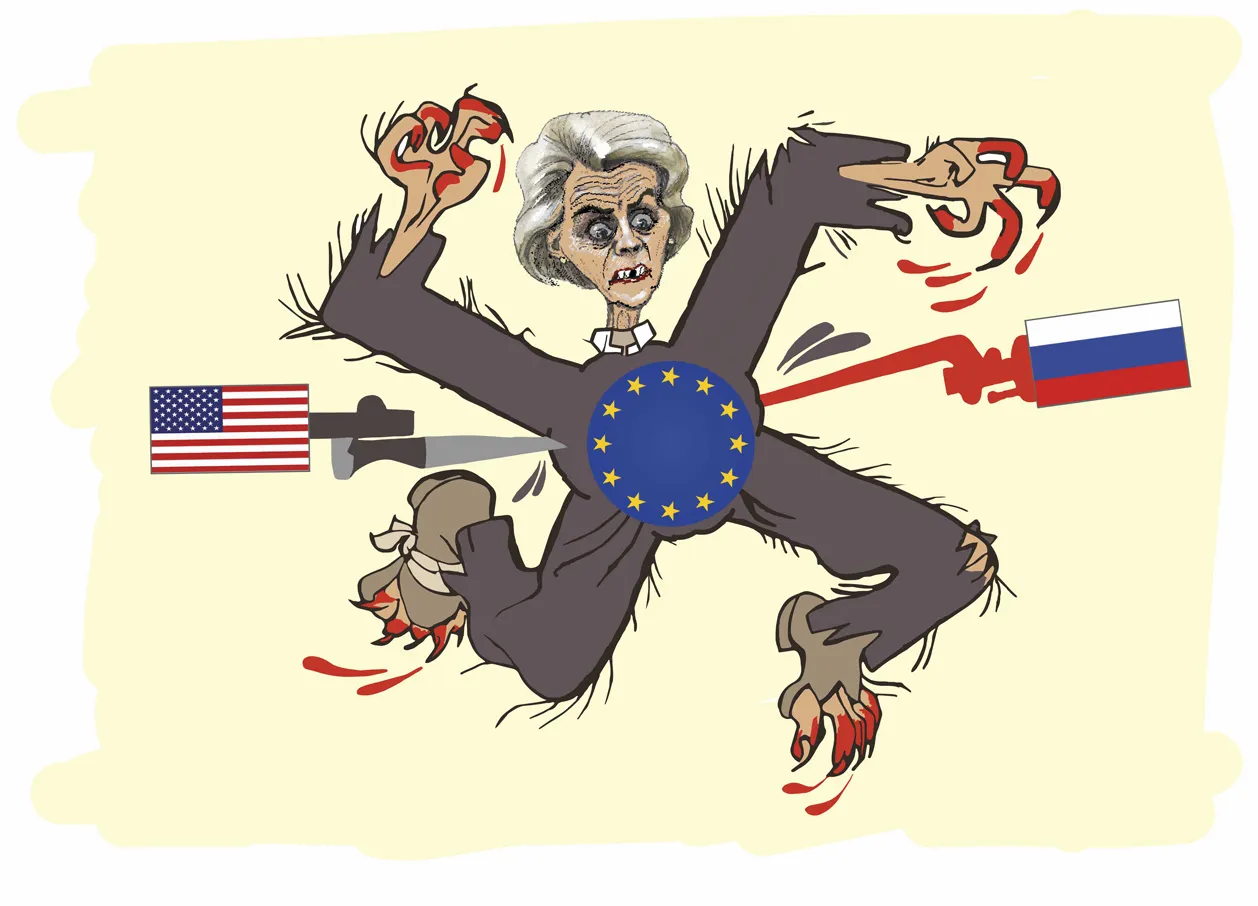A remarkable statement from Russia’s Foreign Intelligence Service issued a broad invitation to the United States to rediscover its unique history, one that would put Russian-American relations on a healthy footing, with a joint mission to free the world from centuries of “Eurofascism,” be it British imperialism or French Jacobin totalitarianism. The statement, titled “SVR: Eurofascism, Just as 80 Years Ago, Is the Common Enemy of Moscow and Washington,” was published, possibly not by coincidence, just as the United States reaches the 250th anniversary of the opening shots of the American Revolution.
The statement, titled “Eurofascism, Just as 80 Years Ago, Is a Common Enemy of Moscow and Washington,” presents past moments of alignment between the two powers—from the Suez Crisis of 1956 to U.S. sympathy during the Crimean War—as models for present-day cooperation. The SVR considers the conflict in Ukraine as simply the latest example of what it calls Anglo-European adventurism, with the U.S. pulled into conflict by Old World powers, particularly the U.K. and France.
The “the present dissension in the relations between the U.S. and the European Union countries blaming Donald Trump for authoritarianism is becoming—against the background of the forthcoming 80th anniversary of the Victory in the Great Patriotic War—a factor contributing to a situational rapprochement of Washington and Moscow, as it has been before on many occasions.”
“The British are encouraging, in every possible way, the Kiev regime,” the report claims, “which glorifies the punishers, the Bandera executioners, who fought on Hitler’s side, and today itself commits numerous crimes against humanity.” Britain’s destructive tendencies, it says, are nothing new—citing the burning of the U.S. Capitol in 1814 as an early example, and saying that some American historians rightly call Britain the first “Evil Empire.”
It says that the British provided the model used by the Nazis for concentration camps, points to the warm ties between the British aristocracy and the Nazis, and accuses Churchill of admiring Mussolini before triggering the Cold War with his 1946 “Iron Curtain” speech in Fulton, Missouri.
The SVR cited French totalitarian examples, such as “The Jacobin dictatorship, which massacred thousands of its own citizens between 1793 and 1794, and imprisoned 300,000 people on suspicion of ‘counter-revolution,’ and the bloody actions of Napoleon were mentioned.” In World War II, French SS soldiers defended Berlin to the end.



